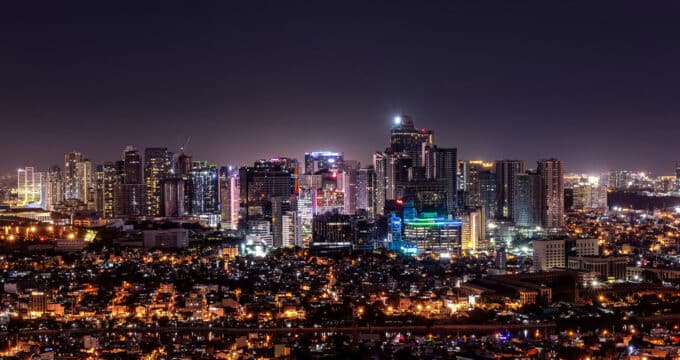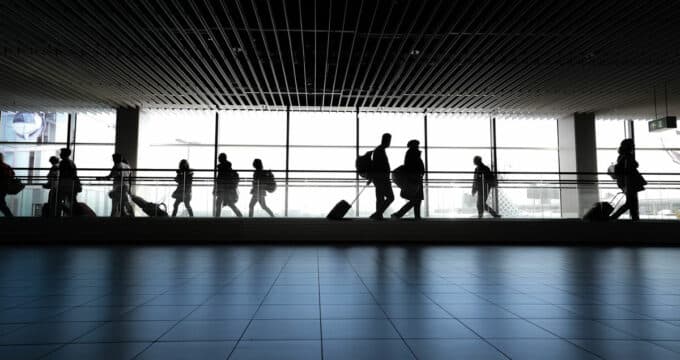Visa processing delays a hurdle for major study abroad destinations this year
- Students hoping to study abroad in – or immigrate to – major study abroad destinations must be prepared for longer wait times for study visa application processing
- Visa processing delays mean that students and agents must submit applications much earlier than they would have in other years
- The pandemic is the main cause for the delays and immigration departments in Australia, Canada, the UK, and the US are trying to catch up
There is a growing disconnect between pent-up demand for study abroad and significant visa processing delays in the countries students want to study in. As a result, agents and students must adapt planning this year and file visa applications much further in advance than in a typical year for study programmes in many top study abroad destinations.
A number of factors are behind the delays, but the most impactful are pandemic-related backlogs and new visa streams opening up for the humanitarian crisis unfolding in Ukraine.
The backlogs detailed in this article are notable not just for their immediate consequences (frustrated students and families) but for the longer-term impact on student mobility. If international students don’t think they have a chance of having their visa processed in a timely way, they may opt for another destination. As we noted in a recent article on Finland, some European countries are offering faster visa processing times and higher visa approval rates than the major English-language destinations. Coincidentally or not, Finnish universities have noted significant increases in applications over the past couple of years.
Canada
In Canada, CIC News’ Kareem El-Assal reports that the visa processing backlog has doubled in the past two years to the point that 2.1 million people are waiting for decisions.
That massive number includes those who have applied for permanent residence, temporary residence, and citizenship – and among them are international students and graduates.

Mr El-Assal emphasises that that the “files” in the backlog queue are in fact individuals whose lives are on hold, and urges Immigration, Refugees, and Citizenship Canada (IRCC) to treat waiting applicants with more respect and better customer service. CTV News has also published an article detailing the unfortunate situation of some applicants; the article makes the disruption to applicants’ lives quite clear.
Among Mr El-Assal’s recommendations for IRCC are that the department:
- Stop taking applications when it knows its processing capacity cannot handle them in order to not raise expectations that it cannot meet;
- Move all its applications and processing systems online;
- Be more transparent and publish regular updates on the state of its backlog to “allow all stakeholders including applicants themselves, employers, post-secondary institutions, and more, to be able to plan accordingly.”
Part of the backlog, it must be said, is due to good intentions. The Canadian government opened up a new immigration stream to process Afghan refugees last year after the Taliban took control of Afghanistan and it has opened up another stream this year to help Ukrainians fleeing from the Russian invasion of their country.
Overall, however, there are worries that a sluggish immigration system will have a negative impact on the Canadian economy. “Immigration is far too important to Canada’s prosperity for the system to remain disrupted for much longer,” adds Mr El-Assal.
United Kingdom
UK Visas & Immigration (UKVI) reports that its backlog is also related to its decision to prioritise the applications of Ukrainian refugees.
The UKVI has been prioritising the processing of UK visa applications from Ukrainians fleeing the invasion, and this has caused delays for all other UK visa applicants. They write,
“All priority services for entry clearance applications under the work, study, and family routes have been temporarily suspended since mid-March 2022. As a result, the processing times for all overseas UK visa applications are expected to exceed 3 weeks from the appointment date. Many of the Visa Application Centres abroad are advising the applicants of a processing timeframe of 6 weeks.”
And UKVI advises, “all clients and foreign nationals not to make any irreversible plans, such as booking flight tickets, accommodation etc.”
United States
In the US, it has been suggested that visa processing backlogs “are driven in part by a post-pandemic hangover and the immigrant visa bans carried out by the Trump administration …. the State Department is also struggling to recover from staff attrition over recent years.”
Latin American applicants are being particularly affected by the backlog, since only Chile is a “visa waiver” country; visa waivers expedite the processing of inbound travellers. The absence of other Latin American countries on the visa waiver list has contributed to excessive wait times. Bloomberglaw.com reports that “inbound travellers can expect to wait 702 days in Guadalajara, Mexico, 354 days in Sao Paulo, Brazil, and 643 days in Bogota, Colombia, as of this month.”
However, the US government is promising to prioritise student visa processing this summer. On 11 May, Don Heflin, Minister Counselor for Consular Affairs at the US Embassy in New Delhi, told a live audience on Instagram and Facebook that the US “had issued a record 62,000 student visas last year and expected to break that record this year.”
Mr Helflin acknowledged visa processing delays but assured the audience that US visa centres “expect to be at two-thirds of their pre-COVID capacity and hope to reach 100% of this by the end of 2023.”
However, some in the increasingly important student sending country of the Philippines are not optimistic about wait times diminishing anytime soon. The Manila Times reports, “In the April 2022 report of the National Visa Center (NVC), 421,358 are still on the edge of the interview cliff. But the future looks abyssmal.”
The article concludes by informing readers about immigration streams in Canada that might be faster for Filipinos wanting to emigrate. The suggestion underlines just how influential visa processing times are on international worker and student mobility.
Australia
To illustrate the long wait times for international students attempting to get visas for Australia, there is the case of Deepak Chahal, an Indian PhD student at Macquarie University, who told Study International that he has been waiting for a decision on his Subclass500 visa for 15 months. Mr Chahal said,
“I am in great distress and anxiety regarding my visa situation. And it’s not just me; we are approximately 20 PhD students in India (linked through a WhatsApp group) who have been waiting for their visa for one to two years.”
Wait times are variable depending on the applicant, the completeness of applications, and the visa class. This government resource can provide students and agents with estimated wait times for their visa category and type of study. The resource shows that PhD students can wait as long as eight months, ELICOS students 78 days, school-aged students four months, vocational students 12 months, and degree students seven months for a visa decision.
For additional background, please see:














